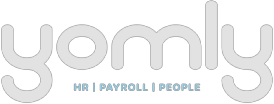Leveraging Data Analytics for Remote Work Efficiency
Remote work efficiency has become a cornerstone of modern business operations, demanding innovative management techniques. This shift towards remote environments necessitates a deeper reliance on data analytics, reshaping traditional HR practices. Our exploration will delve into the integration of data analytics within HR systems, evaluating its influence on employee performance management and the overall efficacy of remote work strategies.

Advancing HR Strategies with Data-Driven Insights
Harnessing the full potential of remote HR software is critical for contemporary businesses. These platforms provide a multifaceted perspective on workforce dynamics, crucial for informed decision-making. Data analytics, when integrated into these systems, uncovers patterns in employee behaviour and work habits. Yomly’s solutions, for instance, facilitate the tracking of these metrics, offering managers actionable insights for enhancing team productivity.
Furthermore, data analytics in HR goes beyond mere monitoring, playing a pivotal role in shaping employee engagement and satisfaction. By analysing feedback and interaction patterns, organisations can develop targeted initiatives that resonate with their remote workforce. This strategic use of data fosters a more inclusive and responsive work culture. It also aids in identifying training needs and professional development opportunities, aligning employee growth with organisational goals. In essence, data-driven HR strategies ensure a harmonious balance between employee well-being and business objectives.
Optimising Employee Performance in a Distributed Workforce
Effective management of remote teams hinges on a nuanced understanding of individual and collective performance. Traditional metrics often fall short in remote settings, necessitating a refined approach to performance assessment. Data analytics allows for a more personalised understanding of employee productivity, identifying areas for improvement and growth. By focusing on specific metrics, HR systems can tailor support and development programs, driving both individual and team success.
Additionally, this approach enables managers to recognise and reward high performers accurately, boosting morale and motivation. It also helps in pinpointing performance bottlenecks, allowing for timely interventions. Importantly, such analytics-driven performance management accommodates the diverse work styles inherent in remote teams, ensuring fair and equitable treatment. This method not only enhances productivity but also contributes to building a culture of trust and transparency, essential in remote work settings.
Integrating HR Systems for Seamless Remote Management
The integration of HR systems within remote work setups is not just a logistical necessity but a strategic advantage. A unified platform streamlines various HR processes, from recruitment to performance evaluation, fostering a cohesive and efficient work environment. The seamless connectivity offered by solutions like those from Yomly ensures that managers have constant access to vital data, crucial for maintaining operational continuity across dispersed teams.
The comprehensive integration of HR systems also simplifies compliance with various regulations and policies, a crucial aspect for multinational teams. It facilitates easier communication and collaboration, breaking down silos that can hinder remote work efficiency. Centralised data storage and access in such systems enhance data security, an essential factor when dealing with sensitive employee information. This holistic approach not only improves administrative efficiency but also provides a robust framework for strategic decision-making, aligning HR processes with overarching business goals.
Navigating the Future of Remote Work with Data-Driven Strategies
As businesses continue to adapt to the evolving landscape of remote work, the reliance on data analytics will only grow. This approach offers a roadmap for navigating the complexities of managing distributed teams, ensuring that efficiency and productivity remain at the forefront. The insights derived from data analytics are invaluable in shaping future strategies, allowing companies to stay ahead in a dynamic, ever-changing business world.
Book a product tour today to learn how you can use our software to manage your remote team members effectively.
What metrics are key for measuring remote work efficiency?
Measuring remote work efficiency relies on productivity metrics, such as project completion rates and time tracking and engagement indicators, like employee satisfaction surveys. Regular assessment of communication efficiency, through metrics like response times and meeting effectiveness, is also crucial.
How can data analytics help in optimising remote work processes?
Data analytics aids remote work optimisation by identifying patterns and trends in work performance and employee engagement. It enables targeted interventions, such as workflow adjustments and resource allocation, based on real-time data insights.
How frequently should data be analysed for remote work optimisation?
For remote work optimisation, data should be analysed at least quarterly to track long-term trends and make informed decisions. More frequent analysis, like monthly, might be necessary for dynamic teams or when implementing new tools or processes.
